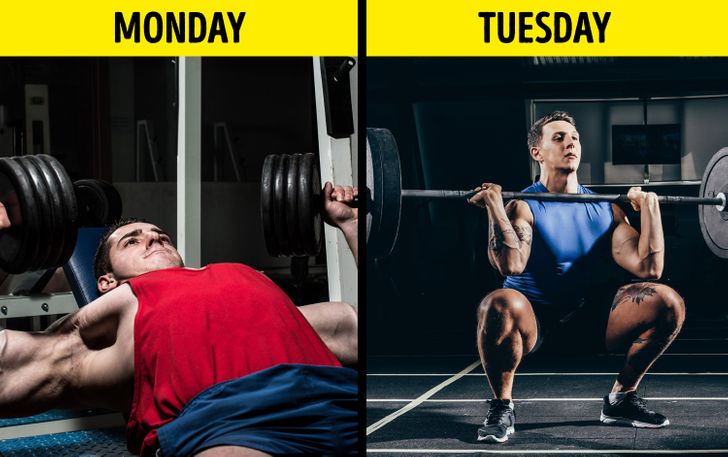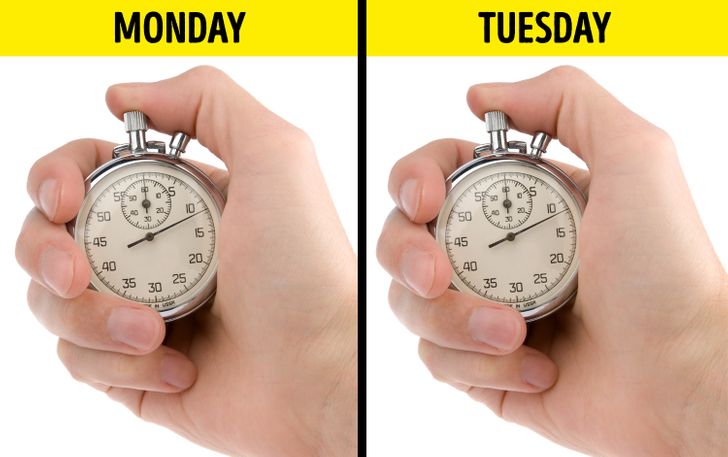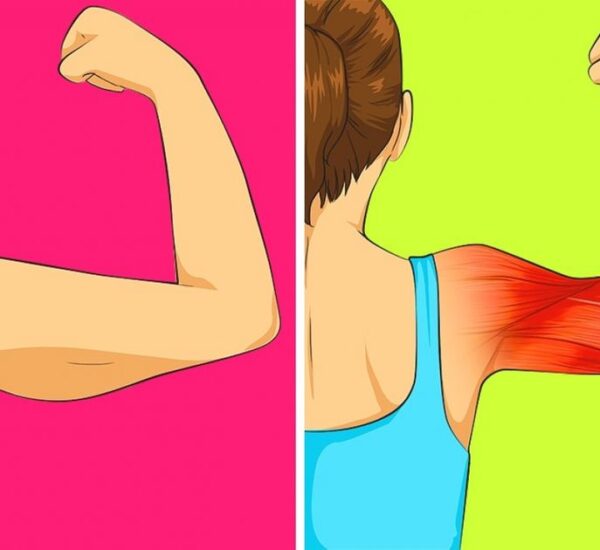Bulking up can be frustrating, but it’s really not that difficult if you know what to do. You just need to make sure that you are gaining muscle in a healthy way, not to mention what works for you. We have some tips that can help you stay strong that come straight from the doctors.
We are always on your side when it comes to your health, so we present this tip in simple parts, just for you.
How to Gain Muscle Mass
Diet

When trying to gain muscle, start in the kitchen. What and how much you eat can help make or break a difference when trying to bulk up:
The word “diet” may make you think that you need to reduce your food intake to get in shape, but as you gain muscle, you may need to increase your intake. If you normally consume around 2,000 calories a day, try adding around 500. Also, muscle growth will help boost your metabolism, requiring you to eat more.
That said, you should consume protein to support muscle gain, about 2 to 4 grams per kilogram of your own body weight. Try protein-rich foods like eggs, lentils, oatmeal, or Greek yogurt. Alternatively, you can also try protein drinks.

Instead of eating 2 or 3 full meals a day, try to eat smaller meals 5 to 6 times a day, especially pre-workout meals.
Eat unsaturated fats, such as those found in avocados, almonds, cashews, or peanuts, as they help distribute vitamins throughout your body. Limit saturated fats, such as fatty cuts of meat or high-fat dairy products.
Ask your doctor about vitamin and mineral supplements that can also help with your diet.
General Exercise

Exercise is important, but you need to make sure you focus on both general exercises and those that focus on working your muscles.
Start with basic exercises and warm-ups, like sprinting or lifting small weights. This not only prepares your body but also puts you in the right frame of mind for exercise.
As the word “general” suggests, be sure to perform exercises that work the whole body, which can include pull-ups, push-ups, rowing, and lifting.
Limit cardiovascular exercises such as running, swimming, jogging, jumping, and jumping rope, as they are used more to burn fat than to build muscle. Take your time. Anything worth taking the time.
Specific Muscle Conditioning

As mentioned, you need to perform exercises that target specific muscle areas:
Divide your daily exercise routine into different exercises, making sure to focus on specific muscle regions per day or per week. In the end, at the end of the week or even the day, you will have paid attention to all your muscles, just at different times. If you have worked your upper body, be sure to work your lower body right after. In other words, don’t forget “leg day”.
Learn which exercises help which muscles. Chest exercises, such as the bench press, can help build up pectorals. Work your triceps with arm exercises like dips and dumbbell stretches. Do squats to work your quads.
Additional tips

Do not get into the routine. Once you’ve mastered an exercise, gradually increase the weight or work you do to see improvement. Keep a schedule when the time comes. If you normally exercise for 10 minutes, always keep it around 10 minutes.
Understand that genetics can make or break you when it comes to building muscle. Because of this, you may need to try different exercises and even diets to see what works for you. Likewise, don’t let other people who are more successful with your exercise plan intimidate you.
Rest is also important. You need 7 to 8 hours of sleep a day to help you repair and rebuild your muscles.
It is totally possible to overtrain, especially when it comes to muscle growth. Overtraining can prevent your muscles from getting the nutrition they need from oxygen. If you’re experiencing insomnia, depression, chronic pain, chronic fatigue, loss of strength, or poor appetite, it’s time to take a break.
What other tips do you have when it comes to gaining muscle? Let us know!


